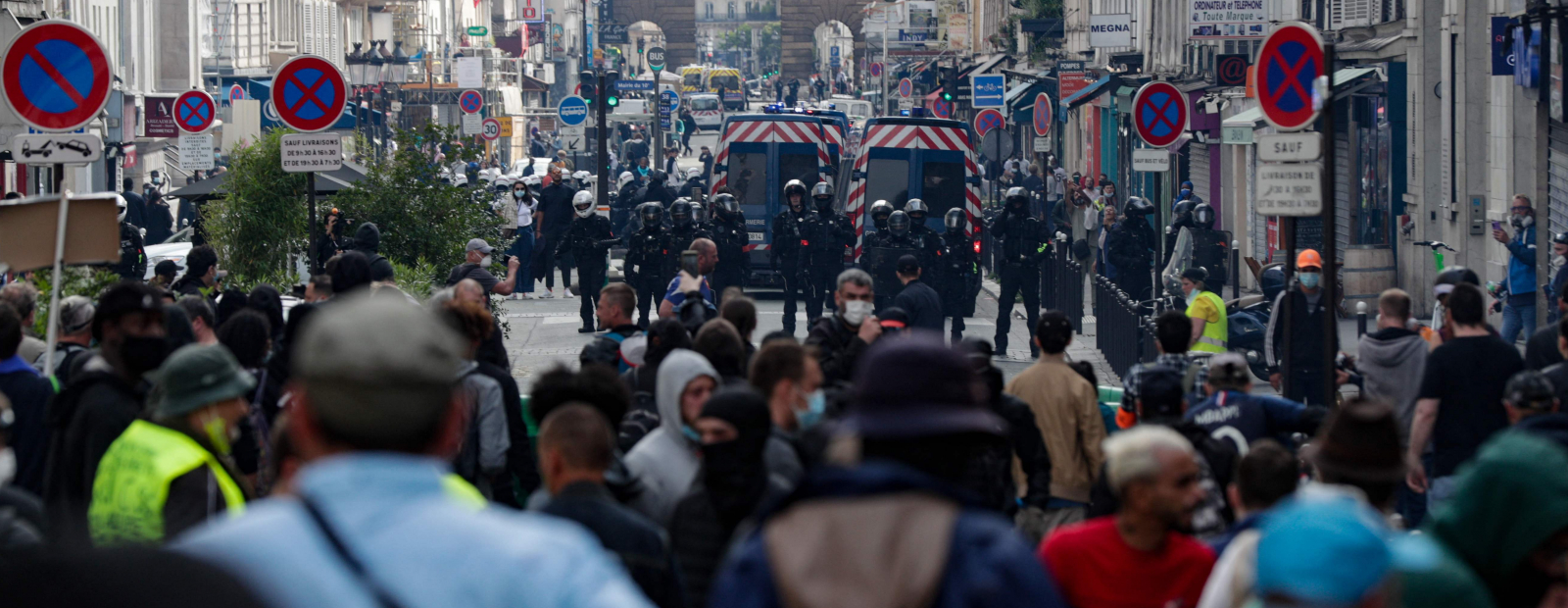“From now on, only seven days will be enough to be considered as fully protected in France and to access the health pass. The European rules of fourteen days remain unchanged for the moment”, warned Olivier Véran, Tuesday evening, on his Twitter account.
The news is part of the change in strategy desired by the French health authorities against Covid-19. With the new objective of encouraging vaccination as much as possible, in order to attenuate the effects of a fourth wave which is now inevitable due to the outbreak of the Delta variant. For this, and from July 21, all events of more than 50 people will require the presentation of the health pass. At the beginning of August, it will be the turn of everyday places such as restaurants, bars and (long) transport.
The shortening of the time to obtain his “complete” pass, however, aroused a certain suspicion among many Internet users. “Shortened time between 2 doses and now, we are protected after 7 days, while the vaccination centers insist on immunity after 14 days. A little consistency would do us good”, tackle one of them under the announcement of the Minister of Health. Skepticism also reaches a handful of doctors. “Science in a hawkish way … (…) Science without science”, notably criticizes Jérôme Marty, president of the French Union for Free Medicine (UFML), still on Twitter.
Limited offer. 2 months for 1 € without commitment
–
By considering a vaccine recipient protected after two doses and seven days, instead of fourteen, does Olivier Véran put the population at risk? Not really, according to several studies.
A marginal gain after seven days in theory
You should know, the first dose triggers the immune response to Covid-19. The second, on the other hand, strengthens it and makes it last longer. At the end of fourteen days after the second injection, assure the designers of the vaccines, the maximum protection promised by the serum is reached. And before ?
A study, largest in real life on the Pfizer-BioNTech vaccine (the most widely used in France), carried out in Israel, is reassuring about the vaccine’s ability to protect well after seven days. In its results published last May, it appears that the Comirnaty vaccine eliminates the risk of infection by 95.3% after seven days. This protection gained 1.2 points a week later (96.5%). The difference for severe cases requiring hospitalization is only 0.8 points in this period, the vaccine offering protection of 97.2% (against 98% after fourteen days).

Efficacy of the Pfizer-BioNTech vaccine against Covid-19 (Israeli study)
L’Express
Another pharmaco-epidemiological study, carried out this time in France, also highlights the high rate of protection of the most fragile from seven days after the second dose. “The risk of a severe form of Covid-19 thus decreases by 87% in people over 75 years old, as early as 7 days after the injection of the second dose. This means that they are nine times less likely to be hospitalized for Covid-19 than unvaccinated people over 75 years of age, “wrote the Health Insurance in May. A rate a priori deemed satisfactory by Olivier Véran, who also received a favorable opinion from the Scientific Council and the “Mr. Vaccine” of the government, Alain Fischer.
What about the Delta variant?
However, these two studies do not take into account the recent arrival of the Delta variant, which is more transmissible than the previous ones, and which has become the majority in France. For the time being, none has taken stock of the effectiveness of the various vaccines against severe forms of the virus.
More recent Canadian work, although not yet peer reviewed, however estimate the level of protection of the Pfizer-BioNTech vaccine against symptomatic Delta infection at 87% after one week after the second dose. This is only two points lower than for the Alpha, detected in the UK (89%).
L’application L’Express
To follow the analysis and decryption wherever you are
–

Download the app
–
–
Another study, published in the journal The Lancet, out of 19,543 infections confirmed in Scotland between April 1 and June 6, provides more information on the effectiveness of Pfizer’s vaccine against Delta. Its results confirm that a peak of effectiveness is reached in the first two weeks after the second injection, at 84% for symptomatic forms of the virus, without specifically saying the effectiveness reached on the last day.
Opinions
Chronic






